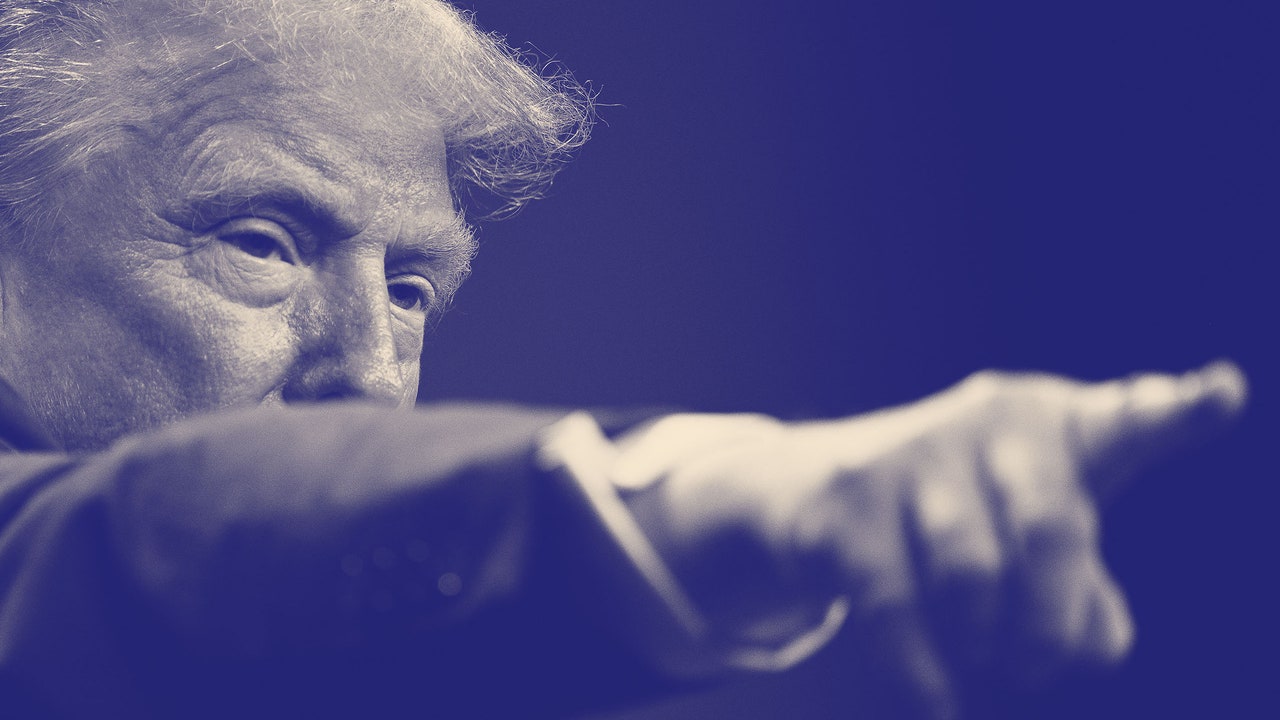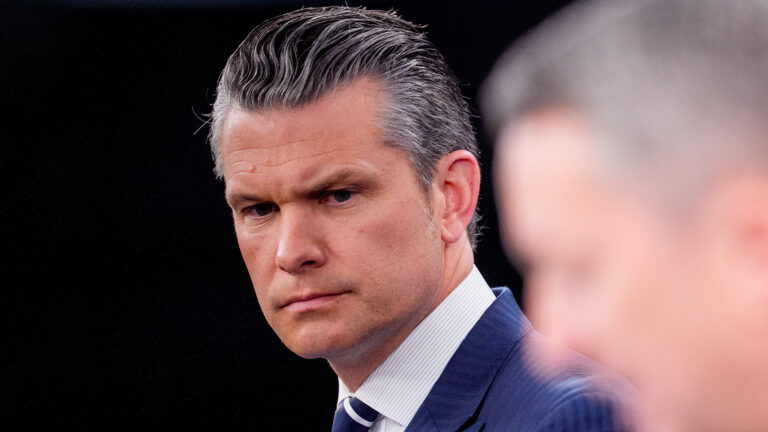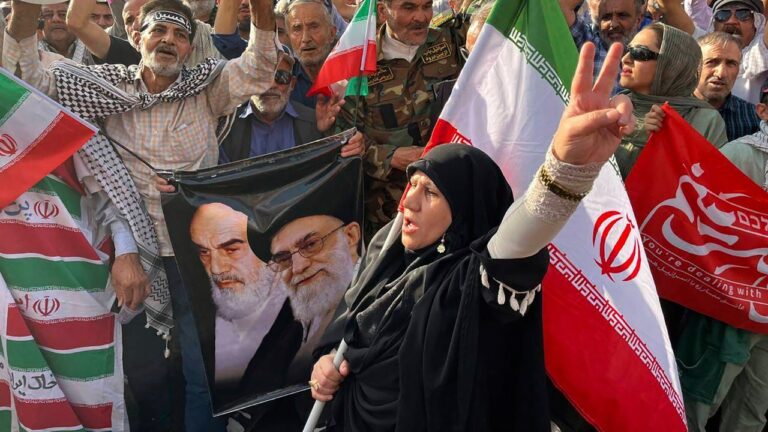Eliot Cohen, a contributing writer at The Atlantic, is a military historian and the founder of the strategic-studies program at the Johns Hopkins School of Advanced International Studies (SAIS). Cohen has written numerous books on military history and strategy, but is perhaps best known for his passionate support of the American invasion of Iraq, which he argued in favor of extensively, both in the late nineteen-nineties, when he was a member of the Project for the New American Century think tank, along with Bill Kristol, John Bolton, and Paul Wolfowitz, and after the 9/11 attacks. In the later years of the George W. Bush Administration, Cohen served in the State Department under Condoleezza Rice. Since then, he has become a so-called Never Trump conservative, regularly attacking the President while continuing to argue for a hawkish foreign policy.
Before President Donald Trump’s order to strike Iran last weekend, Cohen published a piece in The Atlantic pushing for American involvement, and applauding the fact that Trump seemed to be moving toward a military attack. “Much as it may pain his critics to admit it, in this matter he is acting, if not conventionally, then like a statesman of a distinctively Trumpian stamp,” Cohen wrote. Cohen followed this piece with another article, which ran in The Atlantic on Sunday, after the strike, titled “Trump Got This One Right.” He explained, “Trump got this one right, doing what his predecessors lacked the intestinal fortitude (or, to be fair, the promising opportunity) to do. He spoke with the brutal clarity needed in dealing with a cruel and dangerous regime.”
I recently spoke by phone with Cohen about his case for American military action, and his history of support for a proactive American role in the Middle East. During our conversation, which has been edited for length and clarity, we also discussed his skepticism about an American intelligence assessment saying that Trump’s strike only set the Iranian nuclear program back by a matter of months, his post-October 7th trip to the Gaza Strip, and the lessons he did and didn’t take from the war in Iraq.
What have you made of how Trump has handled Iran over the past week, from the strike to the push for a ceasefire?
I was in favor of the strike, and I give him credit. As you know, I’ve been about as ferocious a critic of him as one can be. I think I may have been the original Never Trumper, but I think on this one he did the right thing, because this has been a problem brewing for a very long time, and no Administration, including the one I was part of, was really able to deal with it. He seized an opportunity. In terms of damage assessments, my feeling about that, for a whole bunch of reasons, is that it is way too early to tell. But the strike was actually done remarkably well. Trump being Trump, he immediately claimed credit for obliterating the nuclear program. We don’t know that. And he has claimed credit for bringing peace, which I very much doubt. But many of us, including close friends, loathe the guy, and it’s made it impossible for them to recognize a good decision and a desirable outcome.
You said that other Administrations hadn’t been able to “deal with” this problem. Do you feel like Trump has dealt with the problem?
I think he’s done much more than other Administrations. We don’t know how much damage has been done by the American strikes, but there was damage done by the Israelis in their covert action, their air strikes, and the American strikes. What I think people have missed is that he has really set a precedent for the use of American military power to go after the Iranian nuclear program. It’s really important. We have tried sanctions and negotiations, and they may have, to some extent, slowed the program, but I think it’s very clear that the Iranians were pressing on.
What did you make of Tulsi Gabbard, the director of National Intelligence, saying in March that the Iranian Supreme Leader, Ayatollah Khamenei, had not authorized going forward with producing a bomb, and that American spy agencies agreed with that conclusion?
What I make of it is the same thing that I made of her statements that Bashar al-Assad was not such a bad guy. She’s a nut case who has no particular grasp on the realities of the situation. She is one of a number of people who never should have been appointed to that position. If [C.I.A. director] John Ratcliffe had said that, I would have taken it more seriously, because he’s not a nut case.
We don’t have any reason to believe that she was lying about what the American intelligence community broadly believed, correct?
We don’t have any reason to believe that she was [telling the truth]. And, by the way, the American intelligence community has a pretty mixed track record on this. Intelligence is always difficult. Secondly, on this one, they have an uneven record. Thirdly, the Israelis have had a much better record than we have and they’re motivated because the Iranians want to exterminate them. So between the weirdness and unreliability of Tulsi Gabbard on the one hand and our intelligence community’s record on the other, I don’t take anything she says seriously.
I was only saying that we don’t have any reason to think that the intelligence community had reached a different conclusion.
We don’t know whether she was accurately rendering what people were saying. We don’t know that it was actually a consensus position. [On June 19th, the Times reported that it remains the consensus position of the intelligence community that Iran has not yet decided whether to pursue the manufacture of nuclear bombs; senior officials also told the newspaper that Iran was likely to move toward it if the United States attacked.] It would be a big mistake to think that the top-level judgments are not made with an eye to what you think the political leadership may do that you like or dislike. That was the experience I had in government. So, you know, the intelligence world is murky. It’s a murky world. There’s some outstanding people there and there are other people who have political views and act on them.
You just said that you weren’t sure how much damage was done by the American strikes on Saturday. You also wrote, on Sunday, “For some period—five years, maybe 10—Iran will not have a nuclear option.” Did you have a reason to use those numbers, or were you just speculating? The Times and other outlets recently reported, based on a preliminary Defense Intelligence Agency report, that the strike seems to have only set the program back by a “few months.”
That was a preliminary D.I.A. assessment which is not shared by the Israelis. If you look at the Israeli press, you’ll see that is not the Israeli view. [After Trump began an extraordinary attack on the media for reporting on the D.I.A. assessment, and defended his claim that the Iranian nuclear sites had been “obliterated,” Ratcliffe released an assessment saying that the American strikes had “severely damaged” Iran’s nuclear program. The Times also reported, on Wednesday, that, according to U.S. government officials, “should Iran decide to move quickly to get a bomb, it is unlikely to use the facilities struck in the American attack but probably has much of the raw materials and know-how needed to continue.”]
I ran the Air Force’s study of the first Gulf War. And even like six months or a year later, we were still arguing about the bomb-damage assessments. It’s a very difficult task. So it is too soon to know exactly what the result of the Fordo strikes in particular were.
That’s why I was surprised by the “five years, maybe 10” thing.
My judgment on that is based on the fact that the issue is not the American strikes; it’s the Israeli and the American strikes.
I wasn’t sure if the five or ten years was from an intelligence assessment or—
That’s my best educated guess.
It’s good to have the best-informed speculation.
Right.
You recently wrote, “[Trump] understands that a different kind of Iran—if not a democratic one, then a tamed dictatorship—would be open for deals, and he would gladly make them. He has engaged more with the Persian Gulf in recent years than with any other part of the world, and sees opportunities there. He believes that the price would be low, and although the Israelis have done the heavy lifting, he will get the credit from them and others for the finishing touches.” What did you mean?
He clearly likes going to the Middle East. He likes the Persian Gulf. I think it’s partly because he likes the deference, the vast quantities of things like gold all over the place, huge business deals, jetliners. Parts of it are grotesque. But, in any case, I think he does feel comfortable doing business with those people.
He’s a businessman.
He’s a businessman of a certain type and a certain rather unsavory type. But, yeah, he is a businessman. He also probably sees this as his opportunity to get a Nobel Peace Prize, which he clearly thinks he deserves and desperately wants. But also, he has a feral instinct for weakness. And I think he understood much better than a lot of the commentators have understood that this is a weak state and it’s a weak regime. And he proved to be right. All this stuff about how these guys are going to unleash terror against Americans all over the Middle East and elsewhere—no, they shot one salvo of missiles at an empty base, after they forewarned us.
Yes, you recently wrote, “The bottom line is that Iran’s leaders do not relish the idea of tackling the United States directly, and that is because they are not fools.” You also wrote, “Israel’s current campaign is built around two realities often missed by so-called realists: first, that the Iranian government is determined to acquire nuclear weapons and cannot be deterred, bought off, or persuaded to do otherwise, and second, that Israel reasonably believes itself to be facing an existential threat.” Is there a contradiction here? At one level, you seem to say that the Iranians are scared and acting rationally, but also that they would risk extinction and death by trying to destroy Israel.
I wouldn’t accept your characterization of it. I think there are two things at play. One, as former Iranian President Ali Akbar Hashemi Rafsanjani said, Israel’s a one-bomb country, which is very different from the United States. They could reasonably believe that with a couple of nuclear weapons they could basically destroy the state of Israel.
I have been over to Israel several times since October 7th, including getting a tour of the Gaza Strip.
You got a tour of Gaza?
Just Rafah and the Philadelphi Corridor. [The corridor is a strip of land near the Egyptian border.] One of the things that really struck me was some of the Hamas hardware that they picked up, a lot of it Iranian. One of the things the Israelis say is, “This isn’t just about us and the Palestinians. This is us and Iran.” The Iranians have talked about destroying the state of Israel. So I think the Israelis have every reason in the world to think it’s existential. And the Iranians could reasonably believe if they have nuclear weapons that that would give them some kind of umbrella under which they could do a lot of things, particularly to their neighbors.
Iran has done a lot of terrible things in the neighborhood. And having nuclear weapons might unleash their ability to do much more. I was focussed on whether they are a rational regime or one that is willing to risk extinction of their entire leadership just to destroy Israel. That was the tension.
I don’t think until this point they thought that they would be risking the extermination of their entire senior leadership.
Well, Israel does have nuclear weapons.
Hezbollah was able to fire loads and loads of rockets at Israel without getting a nuke in response. But I think we’ve got to remember the Iranians talk about Israel as the lesser Satan. We are the greater Satan and they are much more afraid of us.
You are someone who warned about Trump’s lawbreaking and his disrespect for the law. Is there no concern about someone like Trump just deciding that he can use the military whenever he wants, even without congressional authorization?
I’ve been saying he’s a terrible guy for a long time. But I am somebody who very much believes that you don’t let those kinds of sentiments, which I absolutely have and I still have, get in the way of your analytic judgments. The “evil” George W. Bush regime, of which I was part, actually twice got authorizations for the use of military force. They didn’t get a whole lot of credit for it, I might say.
And the sainted Barack Obama Administration, which launched an extended bombing campaign in Libya, did not get congressional authorization. And I don’t remember any of the columnists or journalists, let’s say, from the center to the left part of the spectrum, complaining about that. So I think that’s really an important point that people might want to think about to get to Trump. I think he genuinely does not like war, and I don’t know what, exactly, the reason is for that. I think he’s willing to use force up to a point. He really doesn’t like war. I don’t know if it’s because he’s a builder and he hates to see buildings get blown up.
You wrote a piece a couple of years ago called “Beware the False Prophets of War.” In it, you say, “Prognosticating about war is always a chancy business . . . But making all allowances for that, it is striking just how bad Western governments, commentators, and leaders have been over the past few decades at gauging not only what course wars might take but how they have gone as they have unfolded.” In the context of our conversation today, what did you mean here?
I will say what’s striking to me is how wrong journalists, pundits, experts have been here. And, you know, a complete lack of humility. If I were to look at the misjudgments that people have made about Iran, it has been about the nature of the regime that you’re dealing with and about its objectives and about what it’s trying to achieve. Those have been the biggest misjudgments.
In late 2001, less than two months after the U.S. invasion of Afghanistan, you praised what you called “the Afghan achievement” as “remarkable . . . to have radically altered the balance of power there, to have effectively destroyed the Taliban state.” You were also a famous supporter of the Iraq War, which didn’t turn out so well, but which you predicted would be easy to win. What do you think you got wrong, and what lessons have you learned in thinking about Iran today?
So, a couple of things. One is, if you read my book, “The Big Stick,” I have a whole chapter on that.
I read that chapter. I didn’t read the whole book, but after finishing the chapter I still wasn’t sure what the answer to my question was.
So the answer is this: I think in both cases the part I was right about was that the conventional campaign would be quite straightforward, as it was. I think where we failed in both parts, where I failed in both parts, was in overestimating what our institutions would be capable of in terms of actually waging those wars. The biggest issue was the Iraqi and Afghan National Security Forces. And there was the way we rotated forces in and out of Iraq and Afghanistan, rotating entire divisions, which meant that basically you had no consistency in kind of the overall conduct of the campaign. If you look in Afghanistan, say, the divided chain of command, again, made no sense.
But, more broadly, these failures didn’t change your very hawkish outlook on foreign policy in the Middle East and just the whole way America conducts foreign policy, right?
I don’t know that it’s particularly hawkish.
The Afghanistan piece I just quoted from was titled “World War IV.”
Honestly, do I still think that there is a huge problem with radical Islam? Yeah. They still do want to kill us. I mean, it’s—I don’t know if you follow the stuff that’s going on in Africa, for example, right now. You can’t tell me that that conflict is over. You have Islamic extremist groups in the Horn of Africa. And actually in Pakistan and Afghanistan and other places as well, and sometimes even within Europe and even the United States. What I try to do is describe the realities as they are. People don’t particularly like to hear them, but those are the realities. Part of the problem that you have here is everybody wants to scratch at the scab that is the Iraq War.
Right.
And, O.K., you can say Cohen’s a complete idiot.
I remember last year you wrote a piece called “The Awfulness of War Can’t Be Avoided.” It does seem like one thing that you have tried to point out in your writing and just pointed out now is that, broadly speaking, people think that we can avoid these entanglements and we actually can’t.
Oh, absolutely.
That piece was about Israel continuing its war in Gaza, to be specific. But you were talking more broadly, too.
Unfortunately, that’s the world that we’re in, and people do want to avoid that.
You said earlier that you went to Gaza. What was your sense of the humanitarian situation there? It seems quite terrible.
So, honestly, the parts that I was in were just along the Philadelphi Corridor. The main impression is that the level of destruction is enormous. Actually, we saw columns of aid trucks going in. And you understand the problem. As long as you have Hamas gunmen around, they’re going to take charge of the food distribution and use it to control the population, but also to support their efforts.
I guess the Israelis have stopped that by cutting off the aid going in.
Well, the Israelis have not cut off all the food and aid. I mean, that’s not true.
They did for a while.
If somebody has a good solution, I would love to hear it. I don’t know what a good solution is.
Well, you also have people in the Israeli government essentially implying that Palestinians deserve to starve and so on.
That’s appalling. My sentiments are more closely with those who think that you probably should have brought this thing to a conclusion a lot quicker. But having said that, I think what I would also recognize is there are no good solutions to this one. What the Israelis have tried to do, and you might say it’s a terrible solution, is create a new organization to distribute food. Is that a good idea or not? I honestly don’t know. [In the past month, since Israel helped set up an entity called the Gaza Humanitarian Foundation, more than four hundred Palestinians have been killed at or near food and aid distribution sites.] I simply just don’t have enough information to be able to tell.
Yeah, you probably don’t want to just speculate on it.
I don’t want to speculate on it. ♦







